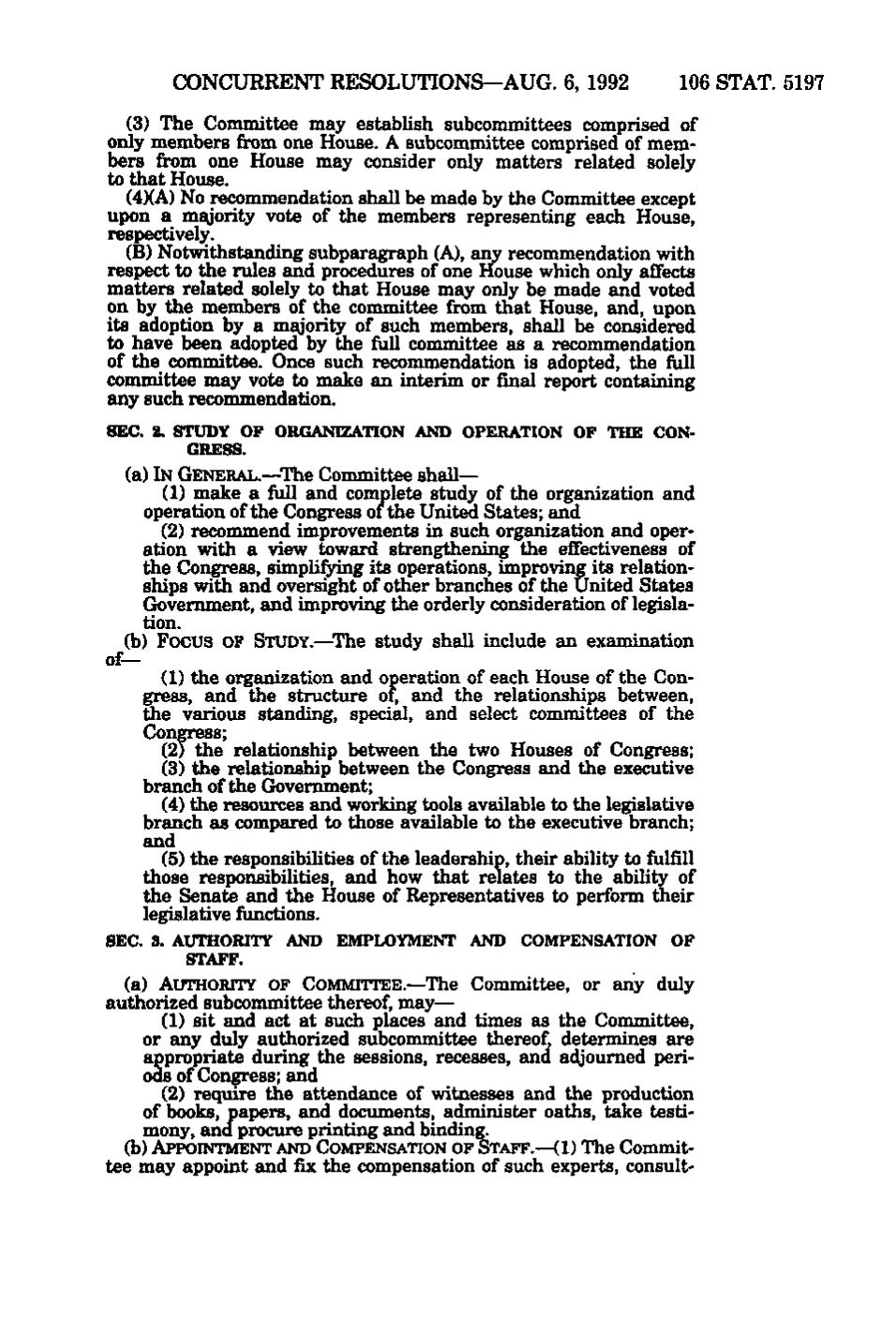CONCURRENT RESOLUTIONS—AUG. 6, 1992 106 STAT. 5197 (3) The Committee may establish subcommittees comprised of only members from one House. A subcommittee comprised of members from one House may consider only matters related solely to that House. (4)(A) No recommendation shall be made by the Committee except upon a majority vote of the members representing each House, respectively. (B) Notwithstanding subparagraph (A), any recommendation with respect to the rules and procedures of one House which only affects matters related solely to that House may only be made and voted on by the members of the committee from that House, and, upon its adoption by a majority of such members, shall be considered to have been adopted by the full committee as a recommendation of the committee. Once such recommendation is adopted, the full committee may vote to make an interim or final report containing any such recommendation. SEC. 2. STUDY OP ORGANIZATION AND OPERATION OF THE CON- GRESS. (a) IN GENERAL.— The Committee shall— (1) make a full and complete study of the organization and operation of the Congress of the United States; and (2) recommend improvements in such organization and operation with a view toward strengthening the effectiveness of the Congress, simplifying its operations, improving its relationships with and oversight of other branches of the United States Government, and improving the orderly consideration of legislation. (b) Focus OF STUDY.— The study shall include an examination of— (1) the organization and operation of each House of the Congress, and the structure of, and the relationships between, the various standing, special, and select committees of the Congress; (2) the relationship between the two Houses of Congress; (3) the relationship between the Congress and the executive branch of the Government; (4) the resources and working tools available to the legislative branch as compared to those available to the executive branch; and (5) the responsibilities of the leadership, their ability to fulfill those responsibilities, and how that relates to the ability of the Senate and the House of Representatives to perform their legislative functions. SEC. 3. AUTHORITY AND EMPLOYMENT AND COMPENSATION OF STAFF. (a) AUTHORITY OF COMMITTEE. —The Committee, or any duly authorized subcommittee thereof, may— (1) sit and act at such places and times as the Committee, or any duly authorized subcommittee thereof, determines are appropriate during the sessions, recesses, and adjourned periods of Congress; and (2) require the attendance of witnesses and the production of books, papers, and documents, administer oaths, take testimony, and procure printing and binding. (b) APPOINTMENT AND COMPENSATION OF STAFF.— (1) The Committee may appoint and fix the compensation of such experts, consult-
�
